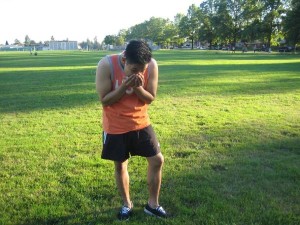If an individual sneezes a lot or if the nose is often stuffy or runny or there is itchiness of the eyes, skin or mouth, he/she might have allergic rhinitis which is a condition that affects many individuals in different parts of the globe.
Allergic rhinitis develops once the immune system in the body becomes sensitized and overly reacts to something in the environment that does not cause any issue in most individuals. Allergic rhinitis is commonly called as hay fever. Remember that an individual does not have to be exposed to hay to experience the symptoms. In addition, contrary to what the name implies, an individual does not have a fever at all.
Two forms of allergic rhinitis

- Seasonal – the symptoms can occur in spring, summer and early fall. This form of allergic rhinitis are typically triggered by allergic sensitivity to airborne mold spores or pollen from trees, grass and weeds
- Perennial – individuals with this form of allergic rhinitis experiences symptoms all year round. It is triggered once the individual is exposed to pet dander, dust mites, mold or cockroaches.
In some individuals, they experience both types of allergic rhinitis with the perennial symptoms becoming worse during specific pollen seasons. Depending on the type of allergic rhinitis affecting the individual, consulting a doctor for proper assessment is a wise move.
Symptoms of allergic rhinitis
An individual suspected with allergic rhinitis will experience the following symptoms.
- Sneezing
- Runny nose
- Itchy skin, eyes or mouth
- Stuffy nose
- Fatigue
What are the triggers?
- Presence of outdoor allergens such as pollen from trees, grass and weeds
- Irritants such as perfumes, cigarette smoke and diesel exhaust
- Indoor allergens such as mold, pet dander and dust mites
The individual should find a way to minimize exposure to the potential triggers in order to avoid the symptoms of allergic rhinitis from developing.
Management of hay fever
There are various measures that should be considered in order to effectively manage the symptoms of allergic rhinitis at home as well as observing changes in lifestyle.
- The windows should be kept closed during the peak pollen season and utilize air condition in the house and while using a vehicle.
- It is recommended to utilize sunglasses or glasses while outdoors to keep pollen out of the eyes.
- Wash hands right away after contact with any animal and request an individual without allergies to assist with the pet grooming.
- Utilize “mite-proof” bedding covers to reduce exposure to dust mites and a dehumidifier to control the growth of mold.
There are some symptoms of allergic rhinitis that can be controlled with over-the-counter medications such as decongestants and antihistamines. If a doctor is consulted, prescription medications are given which are more effective in relieving the symptoms such as antihistamines (nasal sprays, eye drops and oral medications) and allergy shots (immunotherapy).
